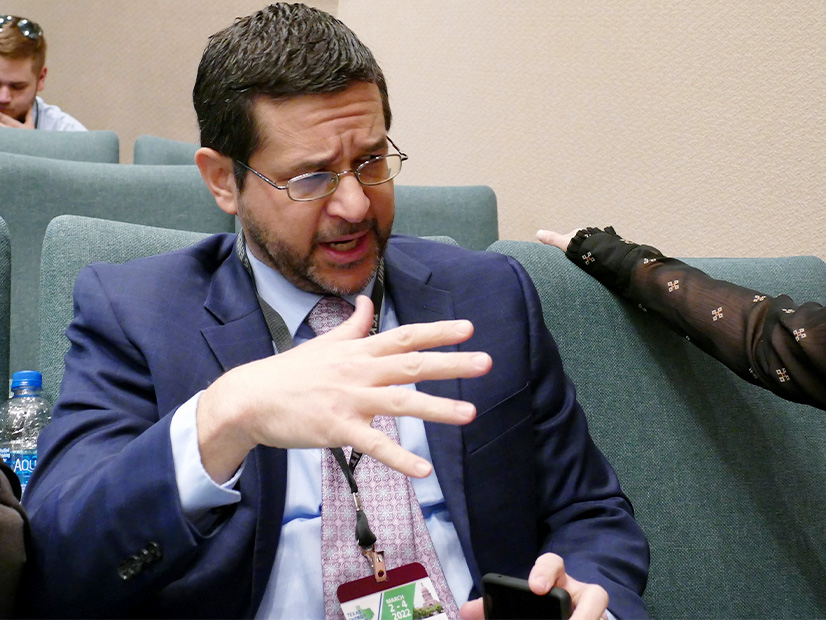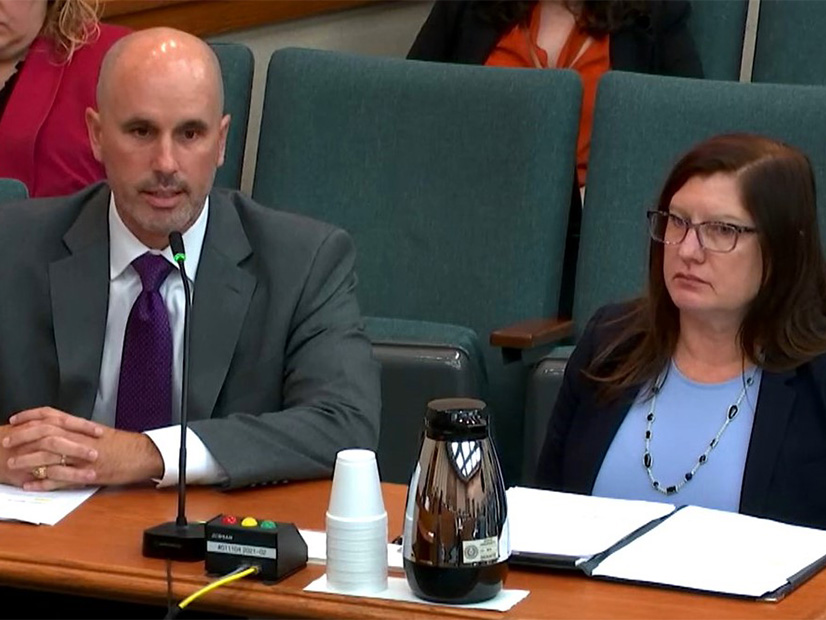
Texas regulators have rejected the second-largest project from its portfolio of potential generation resources that would be built with state funds.
The Public Utility Commission said Sept. 4 that a project put forward by Aegle Power had failed the due diligence portion of the Texas Energy Fund’s loan-application process. The project’s developer had said NextEra Energy was a party to the application, but the Florida company told the PUC that it was not involved.
“Please be advised that NextEra’s name was submitted in the Aegle application without NextEra’s knowledge or consent,” General Counsel Mitchell Ross wrote to the commission in a letter filed Sept. 3. “NextEra is not seeking funding as part of the TEF Program, is not participating in the project for which NextEra was named, and hereby requests that NextEra be immediately removed from PUCT records as a sponsor for the Aegle Power project.”
Doug Lewin, Stoic Energy Consulting’s principal, came across the letter while searching regulatory filings in PUC dockets and raised its profile on social media.
“Not a great start,” he posted on X, formerly known as Twitter.
It gets worse. Lewin discovered that Aegle’s CEO, Kathleen Smith, had pleaded guilty in 2017 for embezzling a “significant” amount of money from a company that was trying to build a power plant in Corpus Christi, Texas.
“It was not like they created some crime in Europe. It was in Texas on a power plant,” Lewin told RTO Insider.
Smith was president of Chase Power Development, which cited low gas prices and difficulty in securing environmental permits when it abandoned the $3 billion Las Brisas Energy Center project in 2013 and said it was going out of business. The plant was to burn petroleum coke from nearby oil refineries.
The Aegle project supposedly would have built a combined cycle facility in the Rio Grande Valley with a nameplate capacity of 1,260 MW. It was among the 17 applications selected for further review as part of a $5 billion loan program intended to add thermal generation to the ERCOT grid. (See PUC Shortlists 17 Projects for Loans from Texas Energy Fund.)
PUC Executive Director Connie Corona said the commission is “still a long way” from selecting the companies that will receive TEF loans.
“Proposed projects that have reached this stage have only met the initial requirements for applications,” she said in a statement. “We have a multistage application and verification process that gets more rigorous at every step to ensure only financially sound applicants with viable projects receive these loans.”
The commission said it will pursue at least a 10% repayment from the TEF contractor, Deloitte. The advisory services firm conducted the first review of applications.
In testimony before the state Senate Finance Committee on Sept. 5, PUC Chair Thomas Gleeson said the commission had learned the previous week that one of the TEF applications was “perhaps submitted with potentially fraudulent information.”
“While I am absolutely certain that this this project never would have gotten funded, and we assumed that some projects would fall out … it is still unacceptable to have moved this forward,” he told the committee. “I think it is clear that our contractor needed to do better in their initial review of this company and that our staff needed to hold our contractor more accountable for that review. … We should have asked a lot more questions about these companies.”
State Sen. Charles Schwertner (R), who authored the bill authorizing the TEF (Senate Bill 2627), called the developments “disappointing” and promised “hard questions” during a Texas Energy Fund Advisory Committee joint oversight hearing with House members Oct. 8.
Schwertner said the request for a contract administrator included “very specific requirements of the … contract administrator regarding fraud prevention.” He also raised issues around NextEra’s involvement in the application, noting that their letter to the PUC “doesn’t say they didn’t have a relationship” with Aegle.
Gleeson told Schwertner that NextEra has a nondisclosure agreement with Aegle. He said that in a call with the company Sept. 4, he asked NextEra to “reconsider their stance” and break the NDA.
“They informed me that they were not changing their stance,” Gleeson said.
“I don’t know what’s going on with NextEra about their relationship here with this applicant, Aegle Power, but I want to know,” Schwertner said. “We’re going to get to the bottom of it, whether it requires subpoenas to [legislative committees], but this is unacceptable that we have large publicly traded companies as well as new entrants with questionable backgrounds.”
“This doesn’t smell right. I’m not believing everything I’m hearing,” said Sen. Joan Huffman (R), the committee’s chair and a member of the TEF Advisory Committee.
The PUC says it expects the due diligence review to take up to eight months. Commission and Deloitte staff will verify each project’s details, including participating companies, financial viability, construction plans, interconnection capabilities, ability to complete the project and ability to pay back the taxpayer-backed loans, the PUC said.
While the lawmakers questioned the initial vetting process, Stoic’s Lewin said his concerns lie with the 10 GW of dispatchable thermal generation that the TEF is designed to construct.
“It looks to me that they were trying to pick a whole lot of different generators. Seventeen different projects, but there are not really 17 difference credible thermal energy generation developers in Texas,” Lewin told RTO Insider. “Somebody really wants [new thermal capacity] to be 10 GW. I want to see the study that says 10 is the number. Where’s the data, where’s the study that says 10 is the magic number?”
Lewin advocates for microgrids and backup power packages that can be used at the local level, such as during the recent Hurricane Beryl, and funding for wires infrastructure and generation facilities in Texas’ non-ERCOT regions. He said the two TEF programs could be at risk should the push for 10 GW of thermal generation encroach upon their funding.
“You have credible power companies out there,” Lewin said. “Let them do their projects and stop fixating on 10 GW.”




